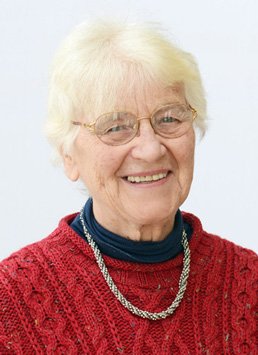Society for the Study of Women Philosophers, Inc.
a non-profit, tax-exempt educational charity 501(c)3 Internal Revenue Code
Perictione I (Plato's Mother)
circa 350 BCE
Late Pythagorean
|
Kate Lindemann's Women Philosophers pages |
 |
Remember!! Your purchase of books by clicking on Abe Books or Amazon links through this site earns us a small commission that is used to provide travel scholarships. |
Perictione I. There appears to be some confusion about this woman philosopher. Some hold that she was the mother of Plato. Others say that there is no such connection, that the author of On the Harmony of Women (circa 425–300 B.C.) was a disciple of Pythagoras who had the same name but was not the mother of Plato.
If we identify this author with the woman who was the mother of Plato the following would be relevant information:
- Perictione I Was an Athenian citizen. She came from an important and powerful family. it is said that the famous Athenian lawyer and poet, Solon was a forbearer.
- Although we do not know the names of her parents, we do know that Critias was her uncle. Her brother was named Charmides. Both of these men were prominent in the city. They are both listed as among the Thrity tyrants who ruled Athens during the brief oligarchy at the end of the Pelloponnesian War (404 - 403 BCE) Critias and Charmides were friends of Socrates.
- Percitione married Ariston in about 432 BCE. If Ariston followed the typical Athenian developement, he would have been about 30 years old at the time. Ariston, too, came from an important family,Aristocles who was archon in 634. They they had four children. Three were three sons, Adeimantus, Glaucon and Plato. Diogenese says that the couple was sent by Athens to settle on the Island of Aegina as colonists (cleurchs) who would retain their Athenian citizenship. It appears that Plato was born there. But the accuracy of this information is not firmly established. See: Nils Her first born son, Adiemantus I died in childhood. Her daughter, Potone, who later became the mother of Speusippus who was active in Plato's academy. And upon the death of Plato, Speusippus and not Aristotle became the leader of the Academy.
- Diogenes Laeertius mentions Perictone I in The Lives and Opinions of Eminent Philosophers in the section on the Life of Plato. See: Perictione I - Lives of the Eminent Philosophers
Early widowhood of Percitione I.
- Percitione was left a widow upon the death of Ariston not many years after the birth of Plato. At the time it was impossible for an Athenian citizen woman to live on her own. In fact, according to law a husband had the right to bequeath his wife and her dowry to another man. In the absence of a will, a widow could choose to return to her father's house or to live with one of her sons. ( The Athenian laws forbade the legal independence of women. )
- At the time of Ariston's death, Percitione would have been about 27 years of age. It appears that she was given in marriage to her uncle, Pyrilampes, her mother's brother, who was a prominent supporter of Pericles who had served an ambassador to the Persian court. Pyrilampes who was about 50 at the time of his marriage to Percitione had a son named Demus from a previous marriage so we can assume that he was a widower and thus free to marry.
- During this second marriage, Perictione I gave birth to a son, Antiphon, the half-brother of Plato. (Antiphon appears in Plato's dialogue Parmenides, where he is said to have given up philosophy in order to devote most of his time to horses.)
- When Perictione I was widowed a second time, it appears that she went to live with her eldest son.
It appears the Perictine I was a successful mother. Plato not only includes his siblings in his Dialogues, but the opening scene of the Charmides is really a glorification of his whole family connection. One might say that Plato's dialgues are not only a memorial of Socrates but is a memorial of his family members.
At a time when Athenian citizen women lived very circumscribed lives, Perictione I seemed have found a way to assert her self and her talents.
C. Jan Swearingen says that Perictine I was a healer and a midwife and he intimates that it is Perictone I who influenced Plato in ways that make him include wise women in his Dialogues..
Besides Perictione's work as a healer, she also seems to have been a philosopher. Her family was given to philosophical interests. Critias, her uncle, and Charmides, her brother, were friends of Socrates.
Sources
Mary Ellen Waithe ascribes the text, Harmony of Women to Perictione I but Holger Thesleff says that this text was written by someone else and that it has been falsely ascribed to Perictione, Plato's mother.
The text, Harmony of Women is included in Mary Ellen Waithe's History of Women Philosophers, vol I Ancient Women Philosophers 600 B.C. - 500 A.D. on pages 32 -34. The piece was translated by Vicki Harper.
This same text is discussed and cited in Prudence Allen in her Concept of Woman on pages 142 -145.
Numerous excerpts from letters can be found in Holger Thesleff "Pythagorean Texts of Hellenistic Period" in Acta Academiae Aboenisis, Humaniora and their authenticity is discussed.
See also: Debra Nails, The People of Plato a Porsopography of Plato and Socrates . Perictione I and Ariston. Available in a Google online pdf file.
Perictione I is among the more than 40 women philosophers featured in
Busted!! A Pictorial History of Women Philosophers DVD Volume 1.
This page was last updated 12/15/14
Society for the Study of Women Philosophers